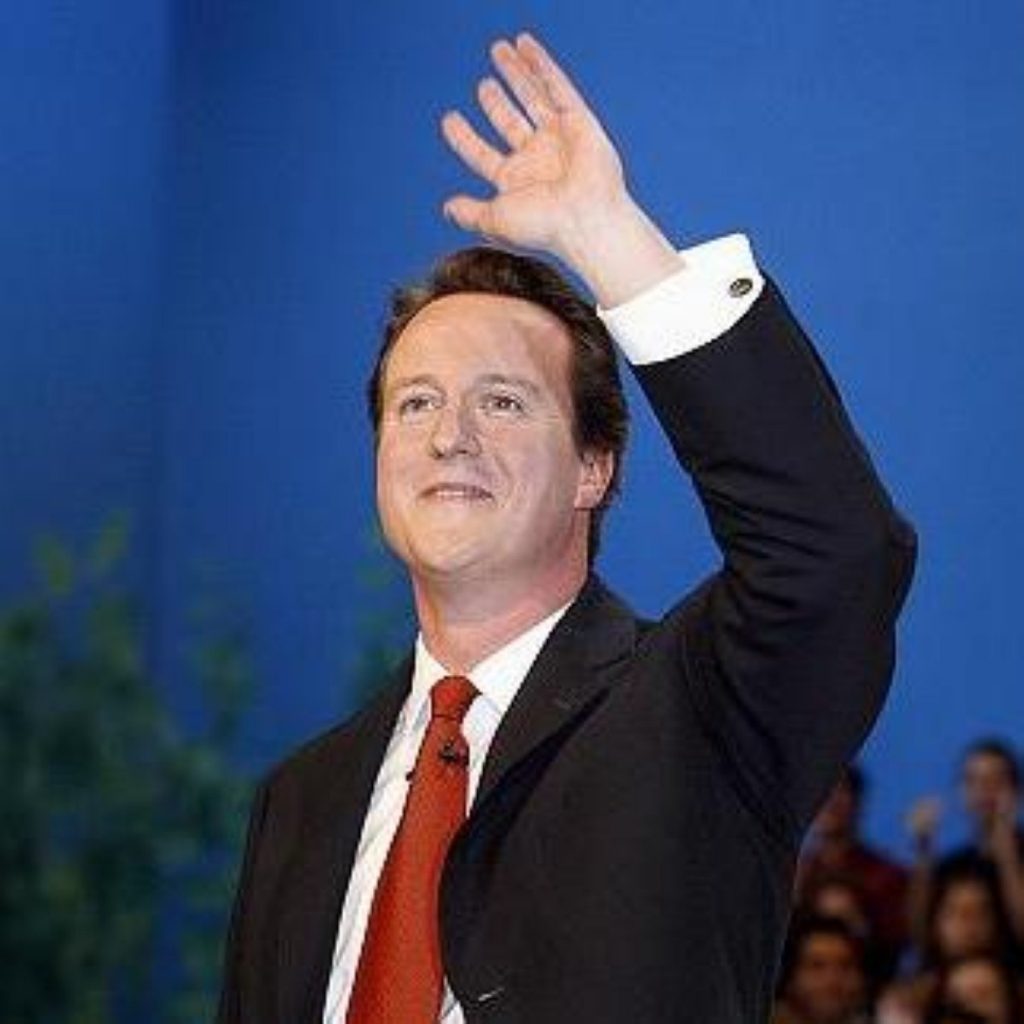Analysis: Don’t mention the coalition
David Cameron strenuously avoided talking about the Liberal Democrats in his first spring conference speech as prime minister.
It’s been nearly ten months since Cameron first entered Downing Street as the PM. But rather than viewing the scene with triumph, many Conservative activists found relief was their primary emotion. The Tories were only in power thanks to the Liberal Democrats. So, by their conference in Birmingham last autumn, the mood had shifted to one of caution. What did coalition government actually mean, in practice?
Cameron was reassuring then, arguing that the decisions being taken on the deficit and elsewhere were for the good of Britain. Skip ahead to March 2011, and the picture has changed again.


Neither Clegg nor the name of his party were mentioned once by the prime minister yesterday. The word ‘liberal’ featured exactly zero times. So, incredibly, did the word ‘coalition’. Instead Tory activists were treated to a list of the government’s achievements, all from the Conservative party manifesto.
“We must tell people about the policies that you campaigned for and we are delivering,” the prime minister said. Welfare reform, the referendum lock, frozen council tax, capped immigration, honoured service personnel, all featured. “So, my friends, we’ve begun to fix all those things that need fixing in our country,” Cameron added. The ‘we’ wasn’t the Tories and the Liberal Democrats. It was the Conservatives, and no one else.
The Labour spin doctors have called it a ‘Tory-led government’. Anyone watching Cameron’s speech could be forgiven for mistaking it as a Tory government, full stop.
Open hostility to the Lib Dems is, in fact, permitted in one area of politics, at least. After an almighty scrape in the Lords the referendum on electoral reform will take place on May 5th. Cameron used his speech to attempt to unite the Tories against the Lib Dem-backed proposal to change from first-past-the-post to the alternative vote. Even if the reform goes ahead the Tories are unlikely to lose out, thanks to their reduction of the number of seats in the Commons from 650 to 600. If they win the referendum by persuading the British public to vote ‘no’, they won’t have lost out either.
“We’re amongst friends, so let’s be clear what the campaigners for AV want us to do,” Cameron told delegates.
(Those campaigners include Lib Dem government ministers, of course)
“They want us to ditch a voting system that has served our democracy for centuries, that is used by almost half the electors on the planet, and that, yes – is simple, it’s clear, it’s decisive, which time and again has given people the power to kick out tired governments.”
There is nothing more scathingly exclusive, more openly contemptuous, than a party conference speech when addressing the attitudes and beliefs of other parties. The whole atmosphere of the room turns against the ‘others’. That venom was not toned down in the passage on AV. It’s war – and the Tories aren’t going to hold back.
The list of the Tories’ achievements in government and Cameron’s fighting talk on AV may have seemed aggressive, but the thinking behind them stems from defensive origins. One is self-justifying, the other punchy and motivating. They serve as distractions from the main problem of Cameron’s speech – a common one for prime ministers at this time of year. With the Budget looming, he has very little to announce. All the juicy news is being saved for March 23rd. Instead we were left with a form of ideological holding statement about the “bigger, stronger society”. He did mention the Big Society once, but only briefly. There’s no need to preach to the converted.
The prime minister defended aid spending, explained that the only alternatives to cutting the deficit would be “cowardly” and rolled out a series of platitudes and promises about helping boost enterprising Britain.
“What drives us is getting things done,” Cameron said, in a section outlining how Conservative values back the small businessman. That can-do attitude, that “spark of initiative” and the “hunger to get on in life”, are at the heart of the Tory mindset. Any small-scale details – like having to work with another party in government – are utterly suppressed. As the prime minister has explained, Conservative ministers are getting their way. Everything else, for the thrusting, forward-looking Tories of today, simply doesn’t matter.












